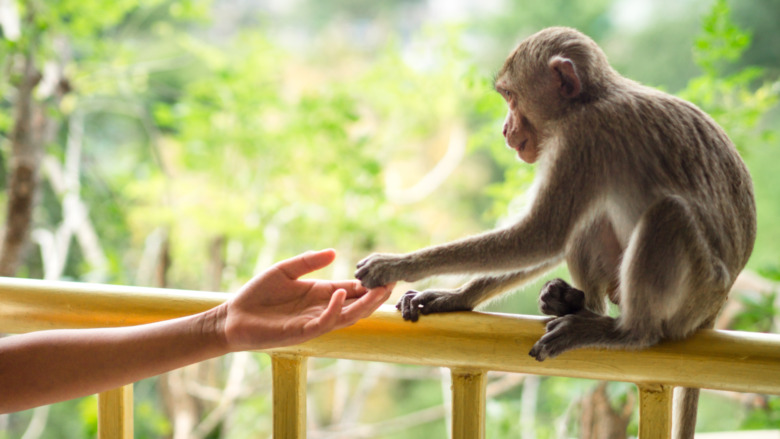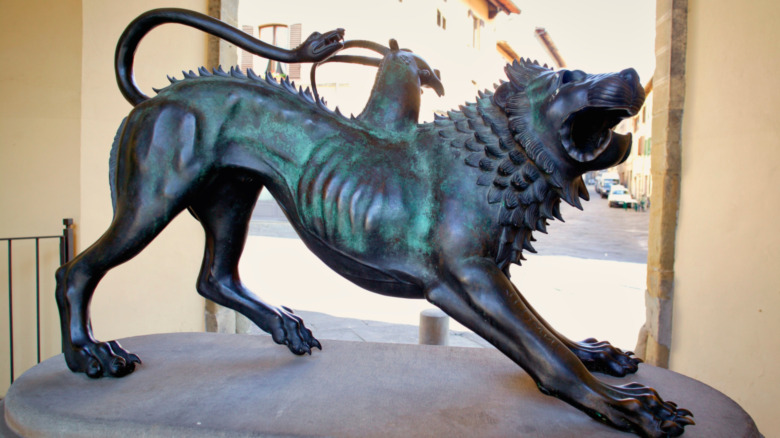The Real Reason Experts Are Concerned With The First Human-Monkey Embryos
Occasionally science fiction becomes science reality, and in those times, things can get pretty weird and uncomfortable. For instance, the practice of combining human cells with animal cells has been going on for a while.
According to New Scientist, biologists have been creating mice with human immune systems for decades all in the name of medical research. Weird, but okay — cures for diseases are good. Scientists also grow human hearts in pigs, so they'll be available to people who need transplants. Unsettling, yes, but we'll allow it because we love our grandparents so much.
The practice of combining cells that are completely distinct from one another is called chimera, named for the mythical creature of the same name, which is described as "a lion with a snake for a tail and a goat's head protruding from its back," per New Scientist.
In the interest of prolonging human life and health, chimera experiments have been allowed in some nations, while being prohibited in several others, according to the Journal of Law and the Biosciences.
In the case of mixing human and monkey cells together, though, there is obvious concern.
According to The Wall Street Journal, we don't really know what could happen when other primates cells are mixed with human cells. Another reason for pause is figuring out how one gauges the "moral status" of human-hybrid embryos. Finally, there is no way to control development of the human cells once they're injected, so they can manifest in unintended ways.
Concern over human-monkey embryos likely won't stop researchers
In the case of the human-monkey embryos, the goal is "to better understand how cells of different species communicate with each other in the embryo during its early growth phase," per the journal Nature.
That's why some think it's concerning for researchers to try to make a franken-monkey with human cells — it's not being done specifically to find ways to preserve health and human life, it's more of a learning venture.
Duke University Bioethicist, Nita Farahany, told The Wall Street Journal, "There were lots of breakthroughs in this experiment. A remarkable step has been taken scientifically that raises urgent issues of public concern. We need to figure out what the right pathway forward is to help guide responsible progress."
Alfonso Martinez Arias, a developmental biologist at Pompeu Fabra University in Barcelona, Spain, disagrees, telling Nature, "There are much more sensible experiments in this area of chimeras as a source of organs and tissues."
He said it's better to stick with livestock animals for these experiments because they are "more promising and do not risk challenging ethical boundaries."
Still, according to Nature, we don't yet have to worry about highly intelligent monkeys nudging us out of our chance to be on "Jeopardy!" just yet.
A researcher who led the experiment, Juan Carlos Izpisua Belmonte, who is a developmental biologist at the Salk Institute for Biological Studies in La Jolla, California, said they have no intentions of implanting the embryos, most of which died within 19 days, into a living monkey.

